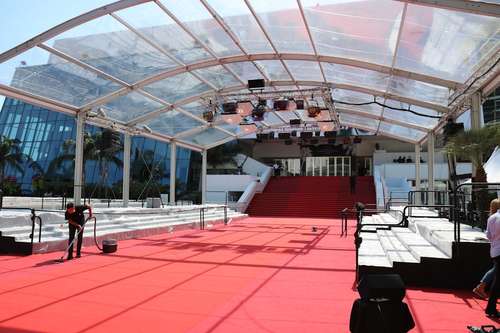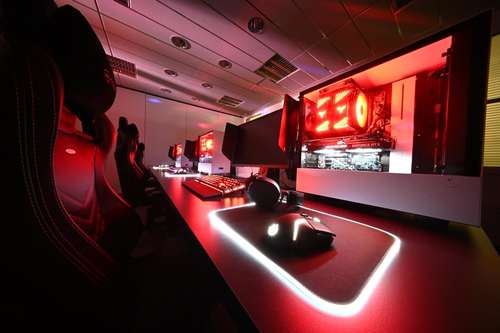Embracer Group CEO Lars Wingefors Steps Down: A New Chapter in Corporate Leadership
The news broke out recently — Lars Wingefors, the long-time CEO of Embracer Group, has stepped down. It feels like the end of an era for many in the gaming industry, especially those who have followed the company's meteoric rise under his guidance. With the ongoing restructuring and significant layoffs affecting the organization, the resignation comes as a well-timed signal of change. The decision has stirred discussions across boardrooms and break rooms alike, leaving many wondering how this will shape the future of the business world.
It's not every day you see a leader of Wingefors' stature step away during turbulent times. The move comes at a time when Embracer Group is trying to redefine its identity after facing rough patches and internal reforms. Whether you're a stakeholder, gamer, or an employee, it feels personal when major leadership changes occur. Embracer Group's recent company announcement has become a focal point of intense debate in corporate news circles.
These changes remind us that in business management, transitions – however tough – can pave the way for renewed vigor and fresh strategies. For many, this moment seems like an opportunity to reflect on the strides made under Wingefors' leadership and contemplate a future filled with new possibilities.
Legacy and Achievements of Lars Wingefors
Lars Wingefors' career with Embracer Group is filled with a series of milestones that resonated throughout the gaming industry. In this section, we'll unpack the notable achievements and challenges he faced over his tenure as CEO. His strategies and bold decisions have left an indelible mark on the company, even as he steps down during a time marked by restructuring and layoffs.
Wingefors was at the helm as Embracer Group grew into a powerhouse. His leadership style was a mix of visionary innovation and pragmatic execution, heralding growth and global expansion. Many credit him with making key acquisitions that would later define the group as a major gaming conglomerate. Each move seemed calculated, almost like placing a strategic chess piece that could change the board's dynamics. It isn't hard to understand why people feel bittersweet about his departure.
Under his guidance, Embracer Group ventured into new territories, taking risks and sometimes facing setbacks. This journey was not without controversy, especially when some of the restructuring efforts led to layoffs and difficult decisions. However, those same actions were deemed necessary by many experts in business management to streamline operations and stay competitive in an ever-evolving market.
The legacy of Lars Wingefors is best captured by how he steered through challenging times with a cool head. Fans of the gaming industry often recall moments when his insights and bold strategies set the stage for industry advancements, making an indelible impact on corporate news and boardroom debates.
The Impact on the Gaming Industry
This section sets out to explore how the leadership change at Embracer Group might ripple through the gaming industry. While the immediate reaction to Wingefors' resignation has been one of cautious optimism and concern, the broader implications may be even more profound.
The gaming industry thrives on innovation and stability. With Wingefors stepping down, many wonder if Embracer Group will see further shifts in its business strategy. The excitement mixed with uncertainty is palpable; after all, a change in leadership often signals a company's reevaluation of its core strategies. This executive transition is being closely watched by industry insiders who are eager to see if this will result in more streamlined operations or a complete strategic overhaul.
Over the years, Embracer Group has been a trailblazer, acquiring studios and broadening its portfolio. The company’s aggressive expansion strategy, sometimes described as a high-stakes game of consolidation, has defined its reputation. Now, pundits and fans alike are asking, 'What does the next move look like?'
Many see this as a turning point. With a more fresh outlook on business management, the new leadership might foster a culture that balances creativity with fiscal prudence. The outcome of this shift will not only affect Embracer Group but will likely send shockwaves through the entire gaming industry.
Restructuring, Layoffs, and the Challenges Ahead
The recent restructuring at Embracer Group hasn't come without its share of controversy, particularly due to the layoffs that have impacted many lives. Let’s dive into the details of these challenges and how they play a part in the larger narrative of Wingefors' resignation.
Corporate restructuring is often like turning a large ship in calm waters; it requires patience and precision. Sometimes, tough decisions must be made to ensure the vessel stays on course, even if that means letting go of parts of the crew along the way. The layoffs, while painful and disruptive, are seen by some analysts as a necessary part of Embracer Group's efforts to realign its priorities in a rapidly changing market.
Employees and stakeholders have voiced mixed reactions. Some are relieved, believing that this drastic reorganization might lead to a leaner, more agile company better equipped for future challenges. Others remain wary, fearing that the loss of experienced personnel could lead to gaps in expertise and a short-term drop in morale. The decision reflects business management dilemmas that many large companies face globally each year.
Leadership change, while unsettling, can also be a catalyst for long-term growth. So, the resignation of Wingefors is being seen as a signal from within that things need to evolve. It’s a reminder that even at the top, no one is immune to the winds of change that blow through the corridors of corporate power.
What’s Next for Embracer Group?
As we look toward the immediate future, the question arises: What does the next chapter hold for Embracer Group? With a new CEO expected to be announced soon, expectations are mixed but animated by a sense of anticipation and curiosity.
The new leadership will undoubtedly inherit a complex legacy — one that is both a testament to past successes and a reflection of the challenges yet to be tackled. In boardrooms across the country, discussions have already begun about potential strategic shifts that could redefine the company's operations. This period of transition is both exciting and nerve-wracking, filled with uncertainties about how the business management style will evolve under the new regime.
Many industry observers are drawing parallels between this executive transition and past leadership changes in major global corporates, where new ideas often paved the way for innovation. The corporate news is buzzing with forecasts that this change might bring about more focused investments in game development, enhanced digital strategies, and even a reevaluation of market positioning. It's like watching a new season of a well-known series — you’re excited to see fresh faces and new plot twists!
The business landscape is ripe for transformation, and Embracer Group appears set to embrace a new chapter by recalibrating its strategies. For employees, gamers, and stakeholders, the hope is that this restructuring will usher in an era that balances legacy with innovation, ensuring that the company remains a pivotal player in the gaming industry for years to come.
In the end, leadership changes often force us to rethink the status quo. Lars Wingefors' departure marks more than just a resignation — it represents the transition of an era, the challenges of executing corporate change, and the exciting promise of what comes next. As we watch these developments unfold, one thing is clear: significant shifts in business management strategies are on the horizon for Embracer Group, and only time will tell if these changes will spark a renaissance in the corporate and gaming worlds alike.




